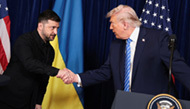Internet Real Name System May Not Be Effective
Staff Reporter
Now appears to be a good time to push for the Internet real-name system, which will force South Korean Web surfers to provide their identification data to make online postings.
The government, political parties and most Internet users agree with a new approach due to recent cyberspace controversies involving anonymous attackers.
Encouraged by wide support, the Ministry of Information and Communication (MIC), which is in charge of overseeing the Internet, plans to draw up specific ways to introduce a real-name system in October.
However, privacy advocates claim the new system will fail to bring rampant cyber crimes under control and will end up threatening those who use the Internet (netizens) with exposing private information.
In addition, some professors contend the real-name scheme violates constitutional rights on free speech.
This is a picture of a bulletin board of a local Web portal. The postings, indicated by being underlined with red lines, were slanderous.
Serious Cyber Crimes
If the controversial system is enforced, people will be required to use their real names and resident registration numbers - the Korean equivalent of U.S. social security numbers - when making online postings.
It became a national hot-button issue after Prime Minister Lee hae-chan said the government was considering the system last month as a means of halting harassment and defamation by anonymous Internet users.
``I think it is undesirable to express one’s opinion behind a veil of anonymity. Posting comments on the Internet is an act to which people should be held responsible,’’ Lee said at the time.
Early this month, the MIC followed up by announcing it will come up with specific ways to start the real-name system in October and both the governing Uri Party and the main opposition Grand National Party agreed with the scheme.
Even netizens, who have been against the real-name policy thus far, accept the initiative, a turnaround that MIC officials guess is the result of recent incidents of cyber terror.
According to a poll of Yahoo Korea, the country’s major Internet portal, 78 percent of 1,782 respondents supported the real-name system while just 19 percent were against it.
Other Web portal sites’ surveys presented similar results. Naver found that 65 percent of its respondents agreed with the use of real names while 57 percent of Dreamwiz’s respondents supported the use of real names.
These results contrast with the feelings of netizens in 2003 when a majority urged the MIC to scrap its plan to introduce the real-name format.
``Cyber terror appears to have raised people’s awareness of the dangerous nature of online anonymity,’’ MIC director Rha Bong-ha said.
According to the police, the number of cyber crimes reported in 2002 stood at just 119,000 cases but it soared to 165,000 in 2003 and surpassed 200,000 last year.
Furthermore, online assaults can become nasty as demonstrated by an incident last month involving a photograph of a girl who did not clean up her pet’s excrement in the subway.
The photograph was posted on the Web and netizens relentlessly attacked the girl, turning the event into a kind of nation-wide cyber lynching.
She might not be able to lead a normal life because some netizens revealed her name, age and school, usually without using their real names.
The incident, which revealed that ordinary citizens as well as public figures can fall victim to cyber attacks, rang alarm bells for many people who have experienced attacks and groundless criticism on the Internet.
Effect of Real-Name System
Because of the public opionion climate, the MIC is adamant in embarking on the real-name policy.
``The current social malaise caused by online anonymity must be corrected as soon as possible. We are checking where real names should be used,’’ Rha said.
``The real-name formula will make people posting messages more careful. As long as someone knows who they are, it will be tough for them to carry out something problematic. Also, the police will be able to find violators easily.’’
Experts are split on the sensitive issue. Proponents like Myung Jae-jin, a professor at Chungnam National University, argues the real-name system is an answer.
``The online culture tainted by anonymity is invading the offline culture. Cyber terror has already overboard and it should be tamed with the real-name system,’’ Myung said.
He added that first of all posters should identify themselves at least on sites run by public agencies, the government and schools as well as those run by influential Web portals and the media.
Critics, including Konkuk University law professor Han Sang-hie, counter that advocates of the new system misunderstand the cause of the problem and ignore freedom of expression.
``The root cause of cyber violence is not the anonymity on the Internet, but the fact that netizens are not communicating. Plus, the real-name scheme may be unconstitutional because it restricts people’s privacy and their right to speak without revealing their identities,’’ he said.
Heo Jin-ho, head of the Korea Internet Corporation Association, concurs.
``The real-name system will not work because there are too many loopholes. Technically, it is impossible to enforce the format,’’ Heo claimed.
Heo claims that shrewd Internet users can sidestep the real-name regulations by using other people’s personal information or by capitalizing on sites run by overseas servers, which the police cannot crack down on.
Too Many Holes to Plug
Seok Jong-hoon, senior vice president at Daum Communications, which runs the nation’s most-visited Web portal www.daum.net, says the real name-based system has not turned out to be effective.
The real-name system is already in place on most of the country’s main Web portals as they allow only subscribers to post or upload their messages.
Because people can sign up for the portals, excluding Daum, after providing personal information such as their names, resident registration numbers and phone numbers, anonymous posters who use nicknames or pseudonyms are excluded.
However, Seok notes that the measures will not prevent some rogue Web surfers from filling bulletin boards with slander and foul language.
``Instead of launching the real-name formula, we need to beef up ethics education and make the rogue Internet users recognize they are doing something wrong. I learned most of them are not aware of this,’’ he said.
Civil rights activist Kim Young-hong of the Citizens’ Action Network said the real-name policy might cause unwanted consequences, such as identity theft.
``A real criminal who uploads illegal stuff will be sure not to use his or her real name and residency number. Also, companies might start illegally selling such information,’’ he said.
``Acquiring another person’s name and residency number would be not a big deal for criminals who typically use stolen identities to obtain cell phones and bank accounts.’’
He contended violators are too elusive to catch with the real-name system and that the decision of whether or not to accept the real-name formula should be up to companies instead of the central government.
voc200@koreatimes.co.kr
스마터리빙
more [ 건강]
[ 건강]이제 혈관 건강도 챙기자!
[현대해운]우리 눈에 보이지 않기 때문에 혈관 건강을 챙기는 것은 결코 쉽지 않은데요. 여러분은 혈관 건강을 유지하기 위해 어떤 노력을 하시나요?
 [ 건강]
[ 건강]내 몸이 건강해지는 과일궁합
 [ 라이프]
[ 라이프]벌레야 물럿거라! 천연 해충제 만들기
 [ 건강]
[ 건강]혈압 낮추는데 좋은 식품
[현대해운]혈관 건강은 주로 노화가 진행되면서 지켜야 할 문제라고 인식되어 왔습니다. 최근 생활 패턴과 식생활의 변화로 혈관의 노화 진행이 빨라지고
카테고리 최신기사
- 4기 폐암 치료
- ‘은퇴 번복→폭탄선언’ 호날두 “1000골까지 계속 뛸 것”
- ‘진통제 투혼’ 김민재 잊었나, ‘배은망덕’ 불타는 독일 현지 여론 “가장 실망한 선수 5위”
- ‘황희찬 침묵’ 울브스 리버풀에 져 11연패
- 충격 진단 “네이마르 이미 끝났다, 몸 심각하게 손상”... ‘식단 문제·훈련 부족’ 지적 “월드컵? 너무 늦었다”
- “지금은 하늘에... 아빠가 뛰던 곳이란다” 故 조타 아들 둘, 반 다이크 ‘손 꼭 붙잡고’ 안필드 찾았다
- “개인 선정은 SON이 유일?” 손흥민, 축구계 8대 기적 선정이 더 대단한 이유 “퀴라소 월드컵 진출보다 멋져”
사람·사람들
more
[‘파친코’ 이민진 작가,인터뷰] “이민자와 취약계층 보호해야”
재미 한인 작가 이민진(57)씨가 새해 1월1일 뉴욕시장으로 취임하는 조란 맘다니(34) 뉴욕시장 당선인에 대해 “맘다니 시장이 긍정적인 변화…

김응화무용단, LA 카운티 연말축제서 ‘화관무’
김응화무용단이 지난 24일 열린 LA 카운티 연말 문화행사 제66회‘할러데이 축제’ 무대에 초청돼 한국 전통무용 ‘화관무’를 선보였다고 밝혔다…
이민단속·산불 영향 LA카운티 인구 감소
LA 카운티 인구가 올해 상당수 감소한 것으로 나타났다. 캘리포니아 주 재무국이 최근 발표한 자료에 따르면 올해 7월1일 기준 LA카운티의 인…
한인 2세, 드라마 ‘런’ 주연 맡아
권호열 세계무술총연맹 총재의 아들 에릭 권씨가 주연하는 드라마 ‘런(RUN)’ 시사회가 지난주 버지니아 애쉬번 소재 리걸 폭스 극장에서 열렸다…
[송년 행사] 코윈 퍼시픽 LA
한민족 여성네트워크(KOWIN) 퍼시픽 LA(회장 조미순)는 23일 LA 용수산에서 2025년 송년회를 열었다. 이날 행사에는 가정폭력 피해 …
많이 본 기사
- “유부남과 엘리베이터서 진한 키스” 트로트 女가수 상간 ‘충격’
- 국방부, 여인형·이진우·고현석 ‘파면’…곽종근은 ‘해임’
- “트럼프-머스크 화해 중재자는 차기 대권 유력주자 밴스”
- ‘3특검 끝’ 법정다툼 본격화…尹부부 11개 재판 결론은
- “中, 대만 포위 좁히고 바로 실탄훈련…美 등 외부개입 억제신호”
- ‘87세’ 김영옥, 하반신 마비된 손자 간병.. “누구든 아픔 있어” 고백
- 러 “합의 근접했다는 트럼프에 동의…우크라, 돈바스 철군해야”
- 진양혜母 치매, 손범수父 입원.. “병원서 자는날 늘어남” 먹먹
- 영주권자도 생체정보 전면 확인 1
- 故 최진실 딸 최준희, ‘개콘’서 성형 중독 고백.. “외모 만족 안 돼 “
- ‘진통제 투혼’ 김민재 잊었나, ‘배은망덕’ 불타는 독일 현지 여론 “가장 실망한 선수 5위”
- ICE 단속 전략 전환… ‘현장 체포’ 급증
- 트럼프, 베네수엘라 마약시설 타격 시사…첫 육상 공격 가능성
- 트럼프, 베네수엘라 마약시설 타격 시사…첫 육상 공격 가능성
- ‘은퇴 번복→폭탄선언’ 호날두 “1000골까지 계속 뛸 것”
- 백악관 “트럼프, 푸틴과 우크라 관련 긍정적 통화”
- 한예슬, ♥남편과 스키장서 보낸 연말..신혼 같은 로맨틱 부부
- [새해 달라지는 교통법규] 과속·음주운전 처벌 가주서 대폭 강화
- 공화·민주, 내년 중간선거 앞두고 일제히 ‘이대남’ 구애
- 자개로 새긴 소나무, 자연과 시간을 동시에 품다
- 신년 연휴에 또 비 이번주 ‘강풍주의보’
- 401(k) 백만장자 50만명 돌파… 시간·복리 투자 ‘결실’
- 中 “美, 대만에 무기 팔면 스스로를 해칠 것…70년전 중국 아냐”
- 젤렌스키 “美, 15년간 안전보장 제안…최대 50년 원해”
- 트럼프, 휴일 취재진에 식사 권하며 “뇌물로 여길건가”
- 워싱턴 일원‘슈퍼 독감’비상
- “뉴욕주 ‘그린라이트 법’위헌 아니다“
- 이민자 트럭 운전사들 “면허박탈 위법… 2
- 샤핑시 환불 정책 꼼꼼히 살펴야
- 다크 초콜릿·커피 속 ‘테오브로민’… “세포 노화 늦춘다”
- 고금리·고가격·관세 ‘브레이크’… 신차 시장 썰렁
- 트럼프 정부, 이민 2세대까지 공격
- 건강한 노년을 위한 식사법, 무엇을 어떻게 먹어야 할까
- 2025년의 최대 패배자(Loser … 2
- 5 Fwy 다중추돌 참사 1명 사망·15명 부상
- [메건 매카들 칼럼] 역차별 당하는 젊은 백인 남성들
- 배관 시설 사용 느는 연말… 갑작스러운 고장 피하려면
- 하워드 카운티‘올해의 골프선수’에 한인 학생
- LA시 아파트(1978년 이전 건설) 렌트비 연 4% 이상 못 올린다
- 브리짓 바르도 별세 왕년의 스타, 91세로
- 미국이 K-푸드 주력시장… 중국 제치고 1위 부상
- 지메일 주소변경 가능 구글, 앞부분 새 설정
- “지금은 하늘에... 아빠가 뛰던 곳이란다” 故 조타 아들 둘, 반 다이크 ‘손 꼭 붙잡고’ 안필드 찾았다
- 하워드 카운티·의회 미주 한인의 날 공동 선포
- Meals Tax 미리 걷은 한인식당, 환불 약속
- 맨하탄 교통혼잡세 판결 내년으로 넘어가
- CJ, 미국서 전통주 문화 확산 나서
- “올 한 해도 수고 많았어요”
- 워싱턴 일자리 4만개 없어졌다
- 뉴욕주 독감 감염자 역대 최고
1/5지식톡

-
 미 육군 사관학교 West Poin…
0
미 육군 사관학교 West Poin…
0https://youtu.be/SxD8cEhNV6Q연락처:wpkapca@gmail.comJohn Choi: 714-716-6414West Point 합격증을 받으셨나요?미 육군사관학교 West Point 학부모 모…
-
 ☝️해외에서도 가능한 한국어 선생님…
0
☝️해외에서도 가능한 한국어 선생님…
0이 영상 하나면 충분합니다!♥️상담신청문의♥️☝️ 문의 폭주로 '선착순 상담'만 진행합니다.☎️ : 02-6213-9094✨카카오톡ID : @GOODEDU77 (@골뱅이 꼭 붙여주셔야합니다…
-
 테슬라 자동차 시트커버 장착
0
테슬라 자동차 시트커버 장착
0테슬라 시트커버, 사놓고 아직 못 씌우셨죠?장착이 생각보다 쉽지 않습니다.20년 경력 전문가에게 맡기세요 — 깔끔하고 딱 맞게 장착해드립니다!장착비용:앞좌석: $40뒷좌석: $60앞·뒷좌석 …
-
 식당용 부탄가스
0
식당용 부탄가스
0식당용 부탄가스 홀세일 합니다 로스앤젤레스 다운타운 픽업 가능 안녕 하세요?강아지 & 고양이 모든 애완동물 / 반려동물 식품 & 모든 애완동물/반려동물 관련 제품들 전문적으로 홀세일/취급하는 회사 입니다 100% …
-
 ACSL 국제 컴퓨터 과학 대회, …
0
ACSL 국제 컴퓨터 과학 대회, …
0웹사이트 : www.eduspot.co.kr 카카오톡 상담하기 : https://pf.kakao.com/_BEQWxb블로그 : https://blog.naver.com/eduspotmain안녕하세요, 에듀스팟입니다…
케이타운 1번가
오피니언
 옥세철 논설위원
옥세철 논설위원2025년의 최대 패배자(Loser of The Year 2025)는?

세밑의 단상(斷想)
 메건 매카들 워싱턴포스트 칼럼니스트
메건 매카들 워싱턴포스트 칼럼니스트 [메건 매카들 칼럼] 역차별 당하는 젊은 백인 남성들
 조형숙 시인·수필가 미주문협 총무이사
조형숙 시인·수필가 미주문협 총무이사 겨울 모서리
 한영일 / 서울경제 논설위원
한영일 / 서울경제 논설위원 [만화경] 봉황의 청와대 귀환

새해 더 중요해지는 노동법 준수

연말연시, 안전하고 차분하게
 캐슬린 파커 워싱턴포스트 칼럼니스트
캐슬린 파커 워싱턴포스트 칼럼니스트 [캐슬린 파커 칼럼] 지미 라이의 마지막 희망
 유경재 나성북부교회 담임목사
유경재 나성북부교회 담임목사 [한국춘추] 미국의 힘
1/3지사별 뉴스

“뉴욕주 ‘그린라이트 법’위헌 아니다“
연방법원이 뉴욕주의 이민 신분에 관계없이 운전면허 취득을 허용하는 ‘그린라이트 법’ 시행을 막으려는 도널드 트럼프 행정부의 법적 시도를 기각시…
맨하탄 교통혼잡세 판결 내년으로 넘어가

워싱턴 일자리 4만개 없어졌다
올해 초 트럼프 대통령 취임과 함께 시작된 정부효율부(DOGE)의 대대적인 연방공무원 감원 칼바람에 올 한해동안 버지니아와 메릴랜드, DC 등…
워싱턴 일원‘슈퍼 독감’비상

트럼프, 베네수엘라 마약시설 타격 시사…첫 육상 공격 가능성
도널드 트럼프 대통령이 베네수엘라의 지상 목표물을 대상으로 한 공격이 단행됐을 가능성을 처음으로 시사했다.28일 뉴욕타임스(NYT)에 따르면 …
[새해부터 이렇게 달라진다] 최저임금 또 오르고… 유급 병가는 더 확대

오늘 하루 이 창 열지 않음 닫기 




















































.png)


댓글 안에 당신의 성숙함도 담아 주세요.
'오늘의 한마디'는 기사에 대하여 자신의 생각을 말하고 남의 생각을 들으며 서로 다양한 의견을 나누는 공간입니다. 그러나 간혹 불건전한 내용을 올리시는 분들이 계셔서 건전한 인터넷문화 정착을 위해 아래와 같은 운영원칙을 적용합니다.
자체 모니터링을 통해 아래에 해당하는 내용이 포함된 댓글이 발견되면 예고없이 삭제 조치를 하겠습니다.
불건전한 댓글을 올리거나, 이름에 비속어 및 상대방의 불쾌감을 주는 단어를 사용, 유명인 또는 특정 일반인을 사칭하는 경우 이용에 대한 차단 제재를 받을 수 있습니다. 차단될 경우, 일주일간 댓글을 달수 없게 됩니다.
명예훼손, 개인정보 유출, 욕설 등 법률에 위반되는 댓글은 관계 법령에 의거 민형사상 처벌을 받을 수 있으니 이용에 주의를 부탁드립니다.
Close
x